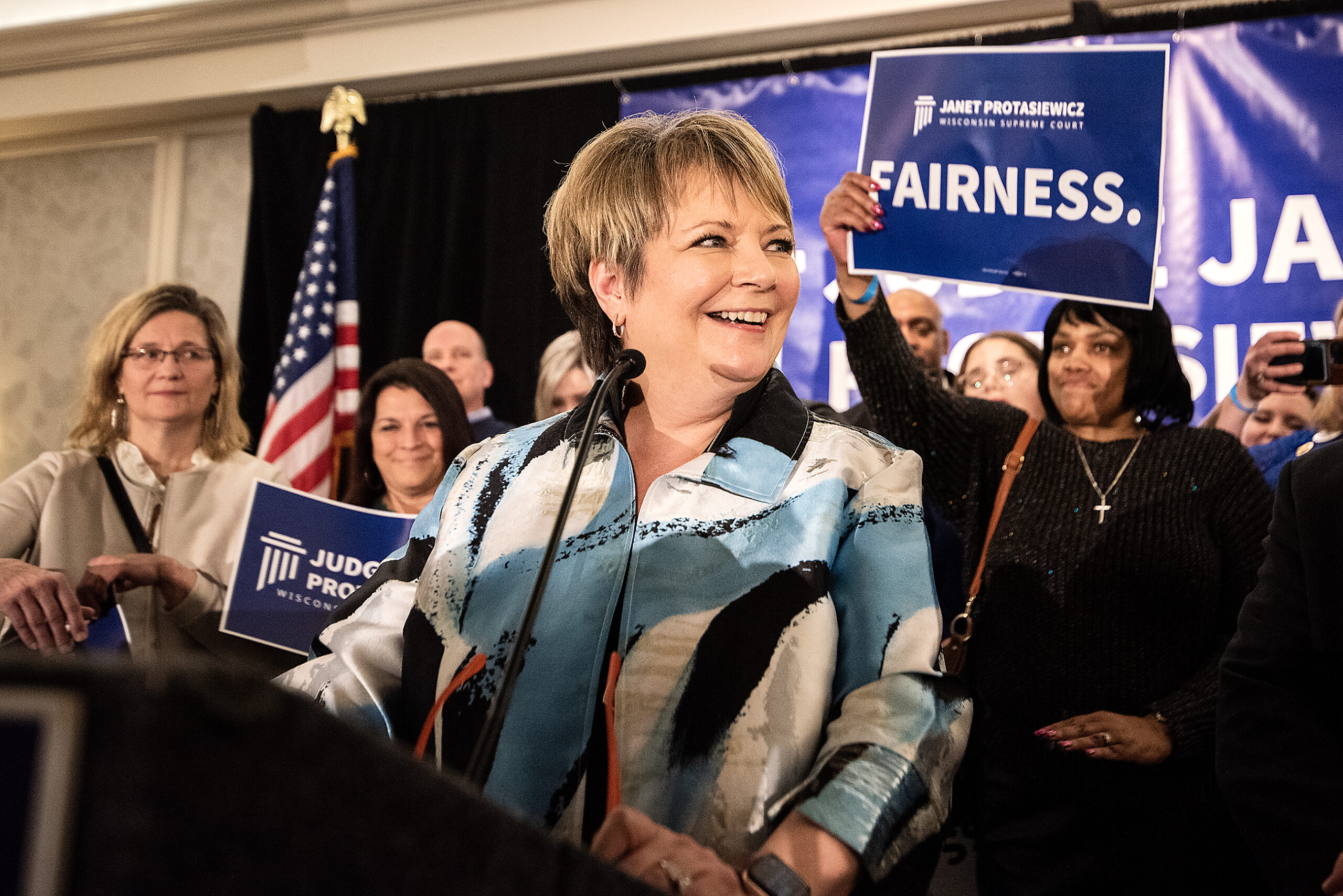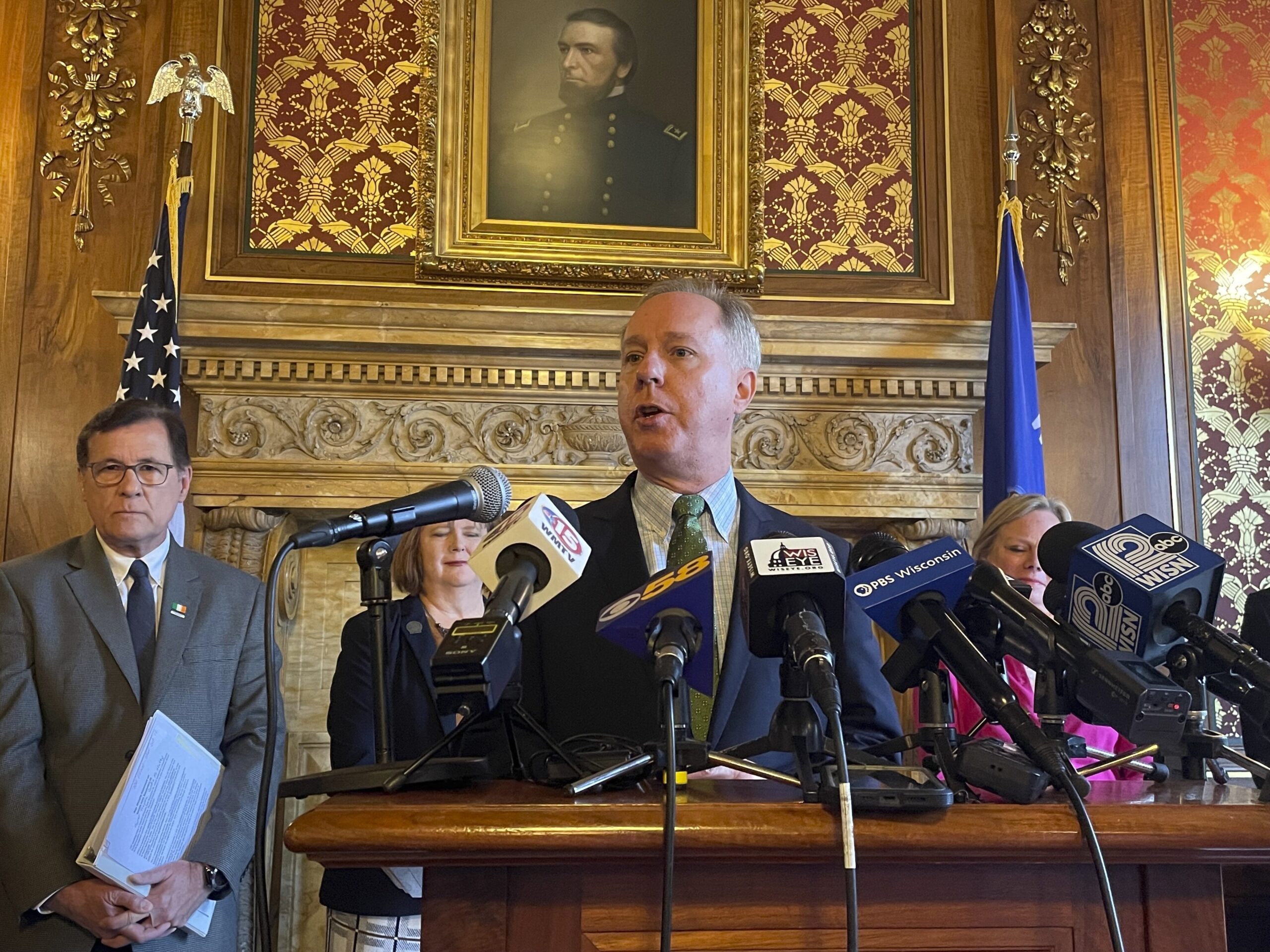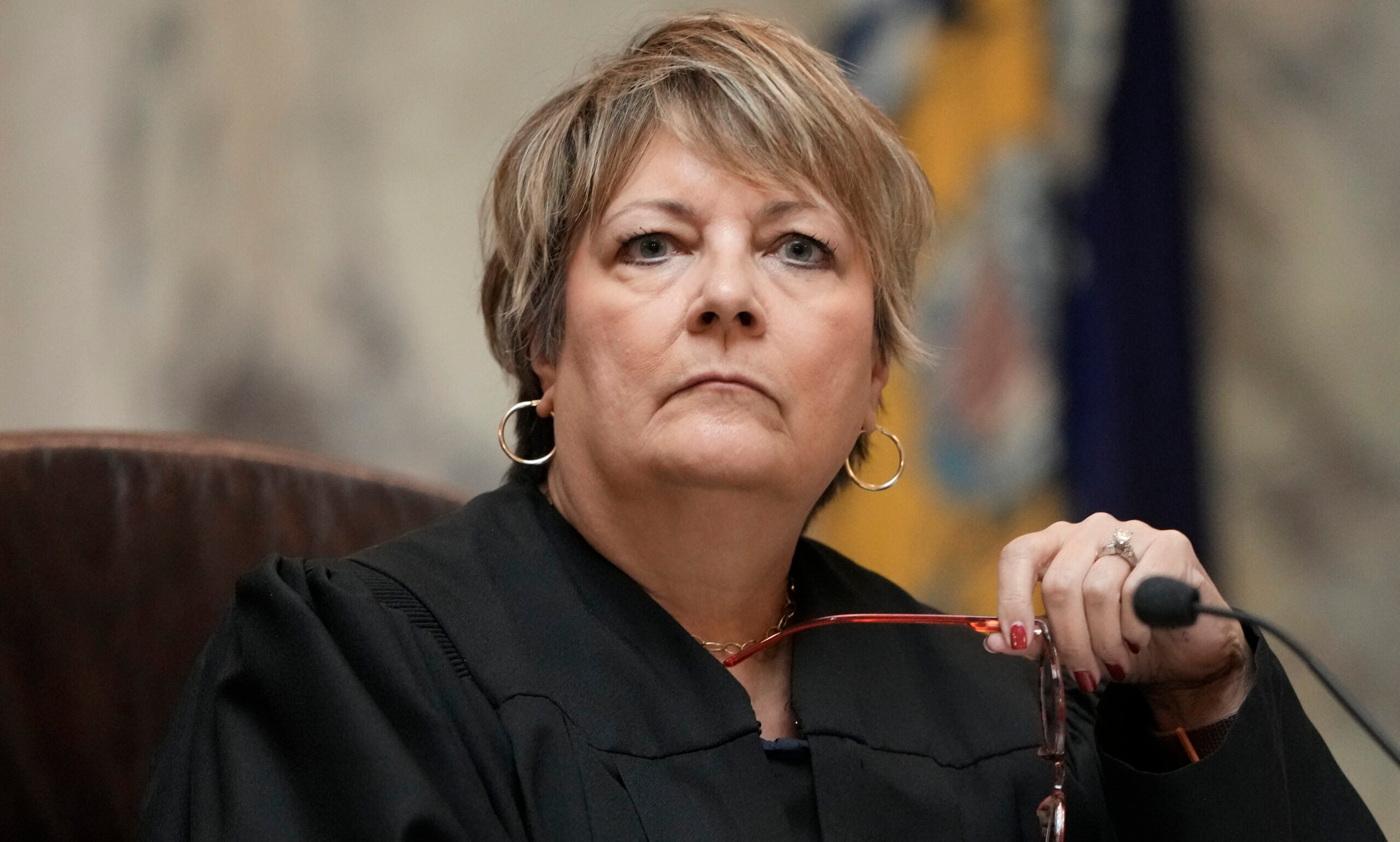Days after Wisconsin Supreme Court Justice Janet Protasiewicz announced she will not step away from a legal challenge seeking to overturn Republican-drawn voting maps, Assembly Speaker Robin Vos, R-Rochester, issued a statement suggesting U.S. Supreme Court precedent “compels her recusal, and the United States Supreme Court will have the last word here.”
But legal experts say that’s far from certain.
The precedent Vos is referring to comes from a 2009 U.S. Supreme Court decision known as Caperton v. A.T. Massey Coal Co. Inc., in which the High Court required a justice on the Supreme Court of Appeals of West Virginia to recuse himself from a coal company owner’s appeal of a $50 million jury verdict against the business.
News with a little more humanity
WPR’s “Wisconsin Today” newsletter keeps you connected to the state you love without feeling overwhelmed. No paywall. No agenda. No corporate filter.
Former U.S. Supreme Court Justice Anthony Kennedy, writing for the majority, concluded there was a “serious risk of actual bias — based on objective and reasonable perceptions” because the West Virginia judge ruled in the company’s favor after receiving $3 million in campaign donations from the company’s owner.
“Our decision today addresses an extraordinary situation where the Constitution requires recusal,” Kennedy wrote.
Vos, other Republican lawmakers and attorneys defending them in Wisconsin’s redistricting lawsuit argue $10 million in donations from the Democratic Party of Wisconsin to Protasiewicz’s campaign, along with her campaign comments that GOP voting maps are “rigged,” mean she cannot fairly rule on the case.
UCLA Professor of Law and Political Science Rick Hasen told Wisconsin Public Radio he can imagine Republicans trying a Caperton-style appeal if the state Supreme Court’s liberal majority were to rule against GOP maps. But Hasen said there are notable differences and that Caperton “doesn’t control this case.” First, Hasen said, a direct contribution from a business owner trying to avoid paying out $50 million “is much more direct than, say, the interests of the Democratic Party.”
“In addition, parties are somewhat different in that they regularly play a role of supporting candidates,” Hasen said. “There are candidates on your state Supreme Court who received support from Republicans. And so, if we’re going to make support from a party disqualifying, then perhaps this justice would not be the only one to have to disqualify.”
Hasen said because Wisconsin’s Supreme Court Justices are elected, the stakes in campaigns are known and party support is expected. He said future implications for other elected judges and justices around the nation would weigh on the minds of SCOTUS members including Chief Justice John Roberts, Justice Clarence Thomas and Justice Samuel Alito, all of whom opposed the Caperton decision.
“It’s not clear that there’s even a majority on the court that still believes in Caperton,” Hasen said. “And who you’d expect would be the natural allies of the Wisconsin Republicans, the conservatives on the Supreme Court, are the ones who are most likely to be skeptical of a Caperton kind of claim. So that really works against taking such a case.”
Vos’s suggestion that the Legislature will try to appeal the redistricting case, and Protasiewicz’s participation, to the U.S. Supreme Court signals a shift in tone from the speaker. Before last week, Vos’s comments were mostly focused on the potential impeachment of Protasiewicz if she chose not to recuse from the redistricting lawsuit.

Republican lawmakers first started talking about impeaching Protasiewicz even before she defeated former conservative Justice Dan Kelly in April by more than 200,000 votes. Protasiewicz’s election gave liberal justices the majority on the Wisconsin Supreme Court for the first time in 15 years.
Vos formed a panel of former conservative state justices to advise him on impeachment. Former Justices David Prosser and Jon Wilcox, themselves both former GOP lawmakers, told Vos they do not support the idea. Still, Vos told reporters last week impeachment remains an option on the table.
Loyola Marymount University Law School Professor Justin Levitt told WPR he thinks Vos’s comments are likely mostly aimed at fellow Republicans “who are clamoring for action.” He said the Caperton case was an example of a “pretty direct conflict of interest.”
“I don’t generally see campaigning about the ills of partisan gerrymandering to be the same sort of conflict of interest, particularly when the court has said it’s not taking that issue,” Levitt said.
In the redistricting lawsuit now before the Wisconsin Supreme Court, petitioners asked the court to consider five questions, including whether the current GOP maps “are extreme partisan gerrymanders that retaliate against” Democratic voters. Ultimately the state’s liberal majority decided to consider whether existing maps violate contiguity requirements under the state constitution and whether the former conservative majority on the court violated the state constitution’s separation of powers doctrine because they enacted maps that were vetoed by Democratic Gov. Tony Evers.
As for the impeachment talk from Vos and other state lawmakers, who are parties to the redistricting case, Levitt sees it as an attempt to change the minds of Protasiewicz and the rest of the liberal majority.
“This is working the ref,” Levitt said. “And, working the ref in order to think that you might get a better call at the end of the day, that doesn’t often work, but there’s a reason that people try.”
Levitt said impeachment would be “pretty egregiously outside the bounds of what should happen in Wisconsin” and talk of appealing the case after the liberal majority rules is a way for Vos to show he’s not giving up the fight.
“Picking something way down the line to say, ‘Maybe I’ll think about this later,’ is a pretty good way to signal to his caucus that he’s listening without committing to anything specific,” Levitt said.
Wisconsin Public Radio, © Copyright 2025, Board of Regents of the University of Wisconsin System and Wisconsin Educational Communications Board.





